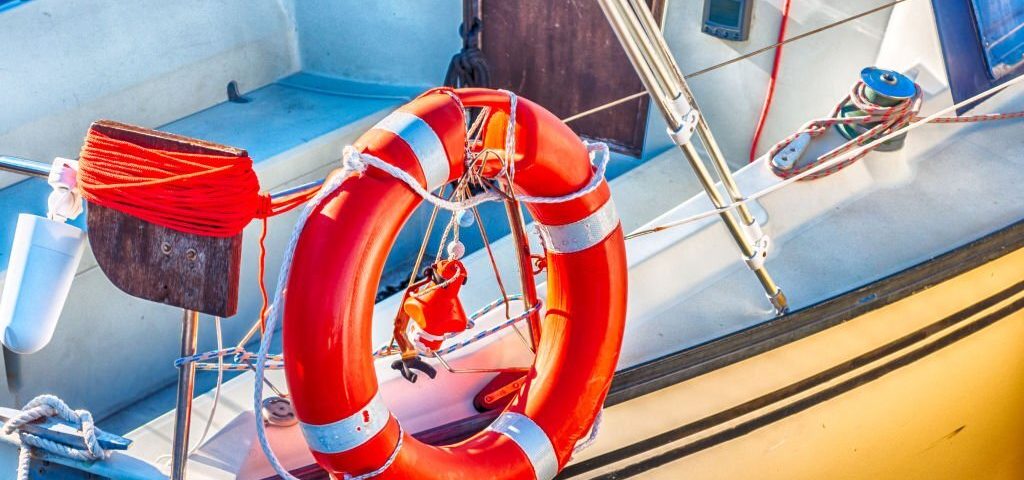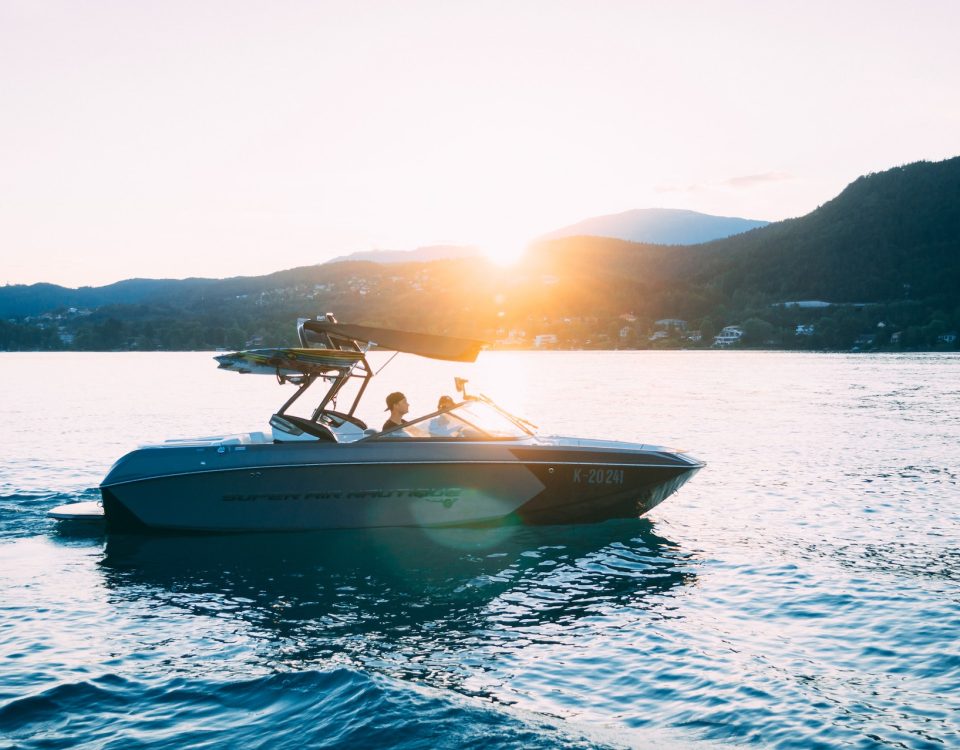
How to Find the Ideal Driving School in Toronto?
April 28, 2022
How to Prepare for a Perfect Boat Ride
May 6, 2022Your Complete Guide to Safe Boating in Canada

Canada has plenty of lakes sporadically spread all over the nation. It allows boating enthusiasts to take courses in boating and experience a good time on the peaceful water of the lake. Everyone with a boating license can spend a beautiful day at the lake with their family, friends or even alone. However, safe driving is not limited to the roads. It also applies to novice sailors who have just acquired their boating license. Spending a pleasant weekend with your friends and family seems like a fantastic idea considering, you know, boating safety rules. If you are an expert licensed driver, safety rules must be at the tip of your finger. To ensure you and your loved ones experience carefree and blissful moments on the boat, let us go through some of the primary rules of boating.
A list of Must-Haves On-board
Emergencies do not visit with an alarm. We do not know what situation will present on the boat, but our responsibility is to be well-equipped for what may come. Keeping your safety in mind, we have curated a list of things you must have on board.
- Flashlight: Even though your boat will have enough lights to guide your way, it is best to keep a handy flashlight. What if the battery runs out or the engine stops working? How will you ask for help? In most cases, people also use flashlights to signal nearby boats for help.
- Duct tape: Always remember your boat is surrounded by water at all times. Therefore, even slight damage or crack in the hull can cause water to enter the ship, putting lives at risk. Before you reach out for help, temporarily apply duct tape in the damaged area to hold the water until help arrives.
- A Whistle: This is the most vital thing you should carry on board. To call for help in the waters, you must have a whistle. There can be times when your engine battery runs out or the electricity on the boat goes out. In such cases, a whistle is of great help.
- First Aid Kit: A first aid kit is the first thing you must carry to your boat. You never know what emergency may befall the boat. To combat all emergencies tactfully, we advise you to keep an all-equipped safety kit.
- Life Jackets: No matter how big or small your boat is, all boat owners must carry life jackets to their boat. All life jackets must be government-approved, and all passengers on board must be familiar with the safety rules.
- Fire Extinguisher: Carrying a fire extinguisher is as vital as carrying the above mentioned safety tools on board. It is best if every passenger is prepared for emergencies on the boat, including a fire. Being on water does not cancel out the possibility of a fire.
Is Consuming Alcohol Safe While Boating?
Many are curious to know if it is safe to consume alcohol on a boat? Some places on the internet will tell you ‘yes’, and some places will opt for a strict ‘no’. Let us break the truth to you bit by bit.
- Even if you consume alcohol in bits and small amounts, you risk distorting your judgement. An impaired vision can affect your power to gauge distance, and you may end up in a collision with another boat. It is best to not drink before setting foot on the ship, as the results can be hazardous.
- Even if you are a guest in the boat, it is best if you do not intoxicate yourself while touring the vessel. ‘Better safe than sorry’ is best policy. Studies suggest that victims of boat accidents who die by falling off a ship do not die of accidental slips but intoxication. They lose their balance in their drunken state and trip and fall into the water. You do not want to be a careless passenger or driver, do you? You can always have a great time onboard without caring about alcoholic beverages.
- Drinking and driving are not just risky on the road but water too. If you are familiar with the safety rules about boating, you must know it is perilous to operate a boat in a drunken state. The alcohol in your system can hamper your senses and may lead to fatal accidents. Also, note that just like the police on land, maritime police also keep a check on all boaters, and the punishment for intoxication is severe. If you are a licence holder or about to receive a licence, you must familiarise yourself with these safety rules to ensure safe boating.
- It must sound bliss to enjoy a cool alcoholic beverage under the sun’s warmth while lying on the cool sand. But please note that it is not the best idea to go swimming after consuming glasses of alcohol. It may cause a lack of coordination and, in some cases, even cause drowning. Additionally, drinking alcohol is prohibited on specific beaches. Therefore, it is best if you are mindful of said rules.
You do not just have to cater to the boat’s safety and its passengers but also ensure that you meet all criteria to get your boating license. Here are a few requirements for boating in Canada you may want to brush through.
What are the Conditions for a Boater in Canada?
Get your Boating License
The first step towards boating on the serene waters of Canada is to get a boating license. If you plan on purchasing a boat, you must receive proper training and a certificate to become a professional boater. A boat license is compulsory to obtain, irrespective of your age and the size of your vessel. The license is proof that you hold professional knowledge in boating and can be trusted with rowing. It also implies that you are acquainted with mandatory boating rules and regulations.
The boating license is made mandatory by the government of Canada.
How to Obtain a License?
Given the advancement in the boating industry and the efficiency of staff in the training associations, you can now easily obtain a boating license in Ontario. A boating license in Ontario is granted by the Canadian Yachting Association, which is associated with 10 Provincial Sailing Associations.
The license test is conducted online. It questions the learner on the fundamentals of boating and regulations prescribed by the Canadian Coast Guard.
Several renowned schools and agencies can assist you in securing a boating license in Canada. These schools/agencies will prepare you for the exam by giving you various lessons and study materials to obtain your license. After you have prepared yourself for the test, you will be required to sit for an online examination. If you pass the test, you will be given a temporary license initially. After about two to three weeks, you will receive your driving license, also known as a Pleasure Craft Operator Card.
Mandatory Boating Equipment
Once you attain your license, you are all set to rock the waters of Canada. Additionally, we also advise you to learn all about the various safety equipment that you must carry to your boat when operational. Before loading the equipment in your vessel, ensure that all tools are in good working condition, provided with a manual, easily accessible and maintained as per your provider’s instructions.
The safety equipment comes in various sizes and shapes. Ensure your boat has room enough to accommodate any equipment larger than 6 meters. Equipment longer than 6 metres are:
- Carrying a lifejacket or floating tube for all passengers on board is mandatory for safety purposes.
- A buoyant of length 15 meters must be kept in the vessel.
- Anchorage is vital for any floating vessel, whether small or big. You must keep a proper anchor or any manual anchoring device that is fifteen meters long, ideally made of thick rope, cable or iron chain.
- Signalling is another crucial factor in a vessel. Therefore, every sailor needs to keep reliable signalling devices in their boat to ensure complete safety.
Must keep a hand pump. - In case of emergency, keep a handy waterproof flashlight ready.
- Keeping a fire extinguisher is also very vital for all boaters. It helps with heating, cooking, or refrigeration problems on-board.
- Install functional navigation lights if you are rowing your boat during the evening or night hours.
A smart rower will ensure the boat is equipped with all necessary equipment before passengers board the boat. If you are keen on learning various techniques of handling your boat professionally, you must take lessons from a trusted training school.
Reach Out to Experienced Training Schools for Boat License in Canada
If you want to sail the waters of Canada in style, prepare yourself this summer to get your boat license from a renowned training school in Canada. If you want more information on the required equipment knowledge to sail a boat, you can contact S&A Sprint Driving School for assistance. You can call us at 416 222 4190 or e-mail your queries to [email protected] S&A Sprint Driving experts work diligently to upskill truck drivers, boat rowers and bus drivers in Canada. Our professionals will also help you procure licenses in less time and in a hassle-free manner.

